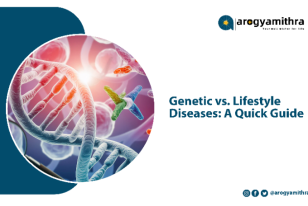The Hidden Dangers of Sugar: Understanding Its Toxic Side Effects
- 24 Jan 2025
- 0 Comments
- Doctor talks on health
The Hidden Dangers of Sugar: Understanding Its Toxic Side Effects
Sugar is a common ingredient in many foods and beverages, but excessive consumption can have serious consequences for health. While it may enhance taste, too much sugar can lead to various harmful effects on the body. Let’s explore the toxic side effects of sugar and why reducing intake is essential.
1. Increases Risk of Obesity
Excess sugar consumption contributes to weight gain by promoting fat storage and increasing calorie intake. Sugary foods and drinks are often high in empty calories, leading to obesity and related health issues.
2. Contributes to Heart Disease
High sugar intake is linked to an increased risk of heart disease. It raises blood pressure, promotes inflammation, and leads to high levels of triglycerides, which can cause cardiovascular complications.
3. Harms Brain Function
Consuming too much sugar negatively affects cognitive function, leading to memory impairment and reduced mental clarity. Studies also suggest that high sugar intake increases the risk of neurodegenerative diseases like Alzheimer’s.
4. Causes Blood Sugar Spikes and Crashes
Refined sugar causes rapid spikes in blood sugar levels, followed by crashes that result in fatigue, irritability, and cravings. Over time, this can contribute to insulin resistance and type 2 diabetes.
5. Weakens the Immune System
Excessive sugar consumption can suppress immune function, making the body more vulnerable to infections and illnesses. It reduces the ability of white blood cells to fight bacteria and viruses.
6. Leads to Chronic Inflammation
Sugar triggers inflammation in the body, which is a root cause of many chronic diseases, including arthritis, cancer, and autoimmune disorders. Reducing sugar intake can help manage inflammation and improve overall health.
7. Increases Risk of Fatty Liver Disease
High sugar consumption, especially fructose, can lead to fat accumulation in the liver, increasing the risk of non-alcoholic fatty liver disease (NAFLD). This condition can lead to liver damage and other complications.
8. Accelerates Skin Aging
Sugar contributes to premature aging by damaging collagen and elastin, leading to wrinkles and sagging skin. Reducing sugar intake can promote healthier, more youthful-looking skin.
9. Affects Mental Health
High sugar intake has been linked to mood disorders, including depression and anxiety. It affects neurotransmitter function and can contribute to emotional instability and stress.
How to Reduce Sugar Intake
To minimize the toxic effects of sugar, consider the following steps:
-
Replace sugary drinks with water or herbal teas.
-
Choose whole fruits instead of sugary snacks.
-
Read food labels and avoid hidden sugars in processed foods.
-
Opt for natural sweeteners like honey or stevia in moderation.
-
Cook meals at home to control added sugars.
Conclusion
While sugar may seem harmless, excessive intake can lead to severe health problems. Reducing sugar consumption can improve overall well-being, prevent chronic diseases, and promote a healthier lifestyle. Making mindful choices about sugar intake today can lead to long-term benefits for your health.












Comments (0)